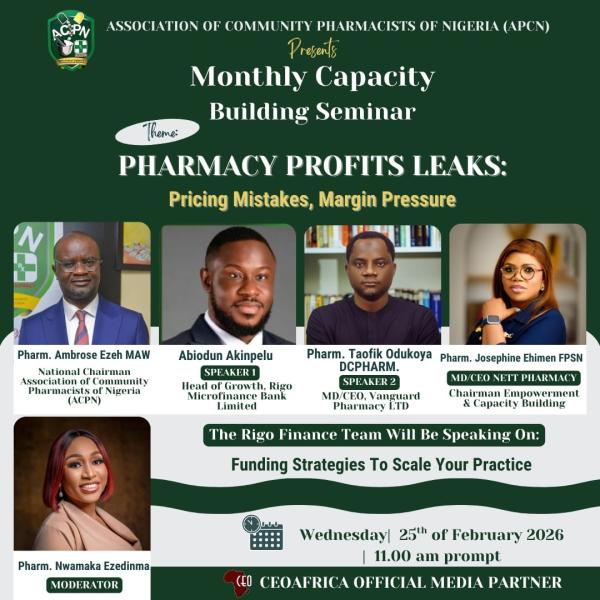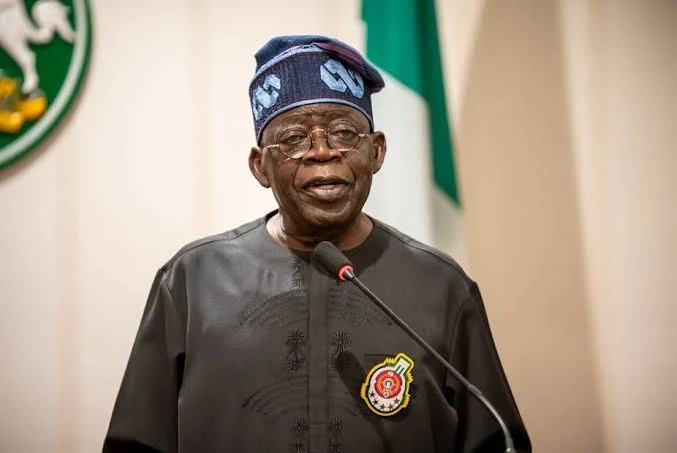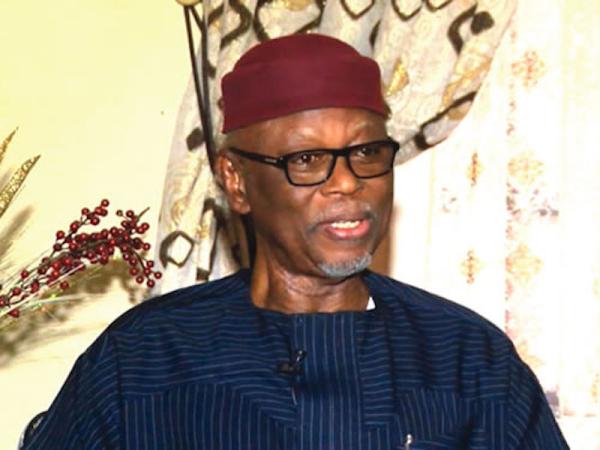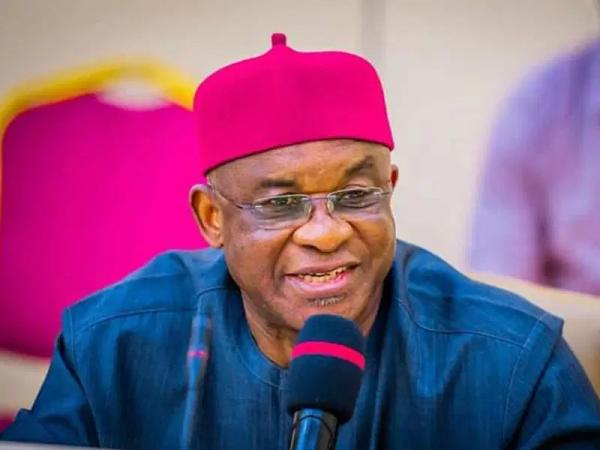
ABUJA — Following the persistent fuel scarcity witnessed nationwide, Nigerians, yesterday, called on oil marketers to show concern to the plight of the citizenry, going by the sufferings and economic hardship their actions have brought upon the country.
Some respondents, who spoke accused the marketers of holding the country to ransom and deliberately blackmailing Nigerians with their demands.
They wondered why the oil marketers suddenly became desperate to collect the money owed them by the Federal Government, when in the past they were owed bigger sums than they are presently being owed.
Despite disagreements with the Minister of Finance, Mrs. Ngozi Okonjo-Iweala, over the actual amount owed marketers, Executive Secretary, Major Oil Marketers Association of Nigeria, MOMAN, Mr. Obafemi Olawore, told Bloomberg that oil marketers are being owed N200 billion.
According to him, something must be done about the outstanding amount following the government’s payment of N154 billion last month.
Banks deny capping loans to marketers
Despite marketers’ claim that banks have stopped giving them credit facilities on account of the huge outstanding debts, a source in one of the banks, who spoke to Vanguard in confidence said it is not true. According to the source, some banks are still lending to the oil marketers due to their understanding of the peculiar situation faced by the marketers.
Fear of impending probe
Analysts suspect that the oil marketers’ renewed desperation to collect their outstanding payments before May 29 might be connected with the allegation of massive fraud in the petroleum subsidy regime.
According to one of them, “we wonder why the marketers suddenly became desperate to collect the money owed them to the extent that they have stopped fuel importation. The oil marketers are aware of the challenges confronting the government; we expect them to be considerate and go about making their demands with a human face.
“I believe the desperation is because the marketers are afraid that the incoming administration will probe the petroleum subsidy scheme and sanction individuals found wanting.”
Fuel subsidy, fraud against Nigerians
Also commenting on the issue, Chief Executive Officer, Highcap Securities Limited, Mr. David Adonri, maintained that petroleum subsidy is a fraud against the people of Nigeria.
He wondered why the marketers are using all means necessary to recover the outstanding payments before Gen. Muhammadu Buhari assumes duty as President based on fears that the new administration might refuse to disburse the amount earmarked for fuel subsidy.
Don’t exploit Nigerians
Also speaking, National Vice President, Nigerian Association of Chambers of Commerce, Industry, Mines and Agriculture, NACCIMA, Prince Billy Harry, noted that fuel scarcity had done remarkable damage to the country and brought untold hardship on ordinary Nigerians.
Calling on the marketers to also think about Nigerians in all their actions, Harry who is also the Chairman, Federation of South-South Chambers of Commerce, Industry, Mines and Agriculture, FOSSCCIMA, said it would be unfair for marketers to resort to hoarding.
He said: “Marketers should know that they are servicing Nigerians and should not look for opportunities to take advantage of the citizens through their actions. The oil marketers should think about Nigerians in all they do. They should make sure they give Nigerians the best.”
He equally blamed the Federal Government for the huge outstanding debts, and called for expedite payment to enable marketers settle their debts to the banks and get funds to finance their fuel imports.
He maintained that at this stage in the life of the country, the refineries should have been working optimally, while products importation should have been long discontinued.
He said: “The Federal Government and the Pipeline and Products Marketing Company, PPMC, have over the years done a great disservice to Nigerians in the area of stability in the supply of petroleum products.
“Money owed oil marketers should not have been the case at this point in time. Our refineries should have been working and not the country importing fuel.”
FG losing N5bn daily to Apapa gridlock
Stakeholders in the maritime industry have decried the continued neglect of the port town of Apapa, following its shutdown by Petroleum Tanker Drivers, PTD, in search of fuel in the Apapa and Tin-can ports.
The stakeholders also noted that the Federal Government is losing about N5 billion daily to the traffic gridlock that has made Apapa a no-go-area.
The National Publicity Secretary of the Association of Nigeria License Customs Agents, ANLCA, Dr Kayode Collins Farinto, said the traffic gridlock along Oshodi-Apapa Expressway, Wharf Road, Marine Bridge, Ijora, Orile and a host of others has become unbearable. Besides, Farinto noted these routes have now become dens for armed robbers and other miscreants, saying that many motorists and residents are being dispossessed of their valuables and cash at gun points.
He added that commercial and business activities are gradually being grounded because of the uncivilised and uncultured attitude of the tanker drivers, who park their trucks indiscriminately thereby blocking the highway causing pains and discomfort to other road users.
Farinto also blamed former President Olusegun Obasanjo for the crisis in Apapa, saying, “the Obasanjo administration went ahead to give approval to all the tank farms to be situated around Nigeria’s busiest ports. This greedy and callous act of ‘Executive Recklessness’ has brought economic loss in terms of manpower and loss of valuable time to both the rich and poor.”
He urged the incoming administration Gen. Buhari to make good its campaign promise to relocate the tank farms in and around the port environment to the Lekki Free Trade Zone.
Also speaking, the Deputy National President, National Council of Managing Directors of Licensed Customs Agents, Mr Uchu Block, blamed the federal government for concessioning the ports without giving consideration for parking space for trailers going in and out of the ports.
Block told Vanguard that immediately after the concession exercise; the concessionaires partitioned the ports without making provision for parking spaces for the trucks.
Going forward, he urged the government to as a matter of urgency; compel the shipping companies to get a holding bay close to the ports, where they can store empty containers until they were ready to receive them.
This, he argued, will free the access roads in and around the ports, adding that the traffic gridlock has continued to drive up the cost of hiring trucks.
According to him, the cost of hiring a 20 and 40-feet truck in the past was between N20,000 and N35,000, but had since increased to between N70,000 to N120,000 respectively.
Dysfunctional system —LCCI
Analysing the gridlock in Apapa from governance perspective, the Director General, Lagos Chamber of Commerce and Industry, LCCI, Mr. Yusuf Muda, said: “If there is anything that symbolises a dysfunctional system and ineffective governance, it is the Apapa gridlock.
“What we are witnessing is a symptom of much deeper shortcomings in the management of government business. If the refineries were working, the trucks will not be converging on Lagos to lift imported petroleum products. If the pipelines were in good state, the bulk of the products would be transported seamlessly to the various depots in the country. If the rail system had not collapsed, most of the products would have been transported by rail at even cheaper cost. If the government had not entangled itself in the complex web of petroleum subsidy, the supply side issues would have been substantially resolved.
“Of course, the cost to the economy is phenomenal. Energy to power the economy is in gross supply. And this is made even worse by a collapsing public power supply system. Many industries and business enterprises have been groaning as a consequence of energy crisis. Many have cut down on the number of work hours. Flights are being cancelled on daily basis because aviation fuel could not be supplied on account of the gridlock on the Apapa Oshodi axis. Because of the convergence of trucks on Lagos ports, an unprecedented traffic gridlock has been created on the Apapa axis of Lagos with spillover effects to other parts of Lagos, leading to considerable loss of man hours. Generally the toll on the welfare of citizens is profound.
“The way out is to address the key structural issues in the oil and gas sector. The telecoms reform model need to be immediately replicated in the oil and gas sector. We need a framework that will restrict the role of government and its agencies to a strictly regulatory one.”
The participation of the NNPC in the supply chain should be discontinued and the private sector should be allowed to operate in a fully deregulated regime, subject to appropriate guidelines.
“The current model is clearly not working for Nigerians and we should put an end to it. A deregulated regime will spur new investments in refineries, create new jobs, improve supply and restore sanity to the sector. Hopefully, the passage of the petroleum industry bill will make this happen. We need to fix our rail system as well. For an economy of the size of Nigeria to be efficient in every sense, it must have a functional rail system.
‘Suspend products delivery by road
Due to the dire situation, members of the Seaport Terminal Association of Nigeria, STOAN, have called for the immediate suspension of the delivery of petroleum products by road.
Chairman of STOAN, Princess Vicky Haastrup, said that the gridlock being experienced in Apapa, which hosts over 60 tank farms is a direct consequence of system failure in the oil and gas industry logistics chain.
Haastrup also said that the only way to solve the gridlock is to immediately suspend the lifting of imported petroleum products from tank farms by road.
“There is an over-concentration of oil tank farms in Apapa, an area predominantly designed for port operations. There is now a situation where we have proliferation of oil tank farms without regards for the safety logistics implication.
“I issued a warning over five years ago advising government to discontinue tank farm operations in Apapa but nothing was done. The problem is now staring all of us in the face.
“Port operations have been brought to a virtual standstill as a result of this chaos created by tank farm and oil tankers and it does not look like anyone is doing anything drastic about it.
“We have a situation where over 10,000 tankers descend on Apapa daily and when you add this to the number of conventional trucks on routine maritime operations, it is not surprising that we have the kind of gridlock we are currently witnessing,” she said.
On the immediate solution to the problem, Haastrup said, “There must be immediate suspension of the evacuation of petroleum products from Apapa by road. The authorities must immediately activate the use of barges in petroleum products evacuation.
“Petroleum products meant for the northern part of the country should be moved to Lokoja and Baro Ports by barges, while the trucks collect them from there rather than coming to Apapa.
“Petroleum products meant for the South East and South South should be moved by barges to Onitsha Port, Warri Port, Port Harcourt Port and Calabar Port. This is the way to go and this will immediately reduce the number of tankers coming to Apapa to a manageable number.
“Ultimately and on the long run, the incoming government should get our refineries working to reduce the nation’s avoidable dependence on importation of petroleum products.
The tank farms in Apapa must also be relocated to allow a breath of fresh air for port operation, as terminal operators, government, shipping companies, clearing agents and the entire maritime industry is hemorrhaging as a result of this unfortunate situation. The gridlock also has serious and dire consequences on the economy,” she added.
IPMAN insists on fixing refineries
Meanwhile, the Chairman, Independent Marketers Association of Nigeria, IPMAN, Mosimi unit, Ogun State, Mr. Adeleke Bada, said the President-elect, Gen. Muhammadu Buhari, could only tackle the perennial fuel scarcity being experienced across the country by fixing the refineries.
The IPMAN Chairman also said the Buhari administration can also complement the existing refineries by building new ones to ensure adequate production and supply of petroleum products.
Bada, who said this on Wednesday while speaking with newsmen in Abeokuta, warned that the fuel crisis might linger up till the inauguration of the new administration on May 29 and even beyond.
He argued that in view of the attendant capital flight, petroleum products importation is bad for the economy.
With regard to pricing, he said, “The pump price varies from one filling station to another because the marketers are not getting supply from the same source.
“The landing cost and the cost of purchase from dealers would determine the price the marketer would sell from his dispensing machine.”
He added that only those who got their supply from the NNPC depot are able to sell at the official rate of N87 per litre.
Many of the filling stations in Abeokuta, Sagamu, Ijebu Ode and other major towns in Ogun state sell a litre of fuel between N110 and N150.
NUPENG, PTD exonerate self
Meanwhile, the absolved itself from blame over the current fuel scarcity, saying the Federal government; Nigerian National Petroleum Corporation, NNPC; and oil marketers are to blame
Speaking with Vanguard, the National Secretary, NUPENG, Comrade Isaac Aberare, defended that the scarcity has nothing to do with the union as the tanker drivers do deliver when products are available. “The anger should be channelled to the federal government and parties involved in this looming crisis, because from what I gathered there is not enough products at the NNPC that can satisfy the masses, and with the refusal of marketers to import due to the arrears owed them, there is no end to the crisis.
Apapa grid-lock
Aberare insisted that the gridlock at Apapa cannot be blamed on the tanker drivers alone, as other road users also contribute to the congestion.
According to him, “Let’s not forget that the Apapa axis is a hub of business activities as well as the economy. As such, we have containers loaded with items outside petroleum products which are conveyed by containers who are also marketers at that axis. As such, the gridlock cannot be limited to tankers alone.”
Marketers still ripping off motorists
The continued scarcity has also sustained high level profits being made by oil marketers, as almost all are selling petrol above N87 per litre. Pump price for petrol now sells at between N120 and N150/Litre depending on the location and outlet.
Some of the motorists who spoke with Vanguard described the situation as unfortunate, and appealed to the incoming government to find a lasting solution to this constant threat to their means of livelihood.
Commercial activities in Apapa has suffered serious setbacks as the persistent gridlock caused by tankers on the highway brought movement to a complete halt for many hours, and stretched for many kilometres.
The development left thousands of commuters and motorists alike stranded and at the mercy of hoodlums who had a field day dispossessing them of their valuables.






















